
 Flash News
Flash News
Igli Tare officially appointed as Milan's new Sporting Director
Two brothers attempt to kill cousin in Kukës, one arrested after a year on the run
Artan Lame passes away, his mother confirms: This cursed moment came
2-year-old Dutch boy falls from third floor of Rinas hotel, taken to hospital
Vlora/ He hit the minor and fled the scene, the 27-year-old woman is wanted
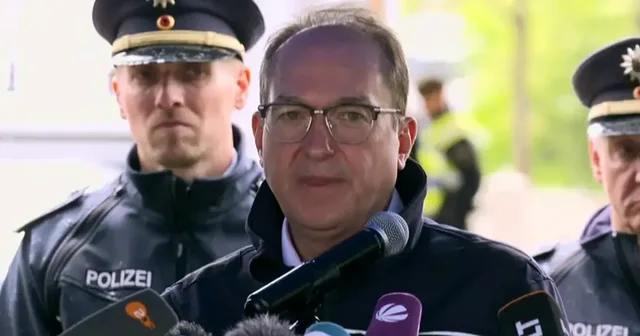
The figures presented by the Minister of the Interior of Germany, Alexander Dobrindt, are concrete. Dobrindt said a few days ago on a visit near Kiefersfelden, on Germany's border with Austria, that the number of returns of illegal migrants has increased by 45 percent. This is just a week after the start of the work of the Merz government.
739 people have returned to the border, compared to 511 deportations a week ago under the old government. 32 asylum seekers have also returned to the border, out of a total of 51 people who applied for asylum at the border. But 19 people from this group were allowed to enter Germany because they were members of vulnerable groups.
Non-symbolic border measures
Some media have written that the last Scholz government also recently made mass returns and that the current measures are symbolic. But the steps taken by the Scholz government to curb illegal migration to Germany have also been registered and mentioned in the Bundestag by conservative unionist parties.
On Friday (23.05.) it was announced that in the first three months of this year, the previous Scholz government returned 6151 illegal migrants to the border. They turned them back mainly to Turkey, Georgia, France, Spain, Serbia and Iraq.
Germany's Interior Minister Dobrindt said that the current measures are not enough for the eyes and cheeks, as he accuses the p.sh government. the ultra-right party, the AfD. This is confirmed by the fact that over 3000 police officers have been added to the border, among other things. Helicopters, drones and thermal imaging cameras have also been used to dictate illegal migrants.
The Minister of the Interior said that not every border crossing point has a police officer deployed, but it can also be deployed. This is done to disorient human traffickers.
Contacts with neighbors for the return of refugees
Chancellor Friedrich Merz said at a congress of his CDU party branch, in Stuttgart, on Saturday (17.05.) that he had "talked to all" neighbors. He added that "everyone knows what we are aiming for". Merz told those present: "don't let anyone tell you that this is directed against our European neighbors."
The German Chancellor emphasized that "we want to solve this problem together (with our neighbors- St. ed.), but we cannot accept that a large part of the unsolved problem arrives in the Federal Republic of Germany." An example brought by the media this week is refugees from the Middle East and Asia. These refugees p.sh. Belarus sends them to Poland, from where many then come to Germany.
And the chairman of the conservative parliamentary group, CDU/CSU in the Bundestag, Jens Spahn, said on Tuesday (20.05.) that even if there were "angers" from neighbors: citizens in Germany should be able to see "satisfied, what is happening at our borders."
Pressure to reduce the number of migrants to Germany
According to recent polls, migration is a concern for Germans, but they are even more concerned about the economy.
It is a fact that many municipalities and cities in Germany complain about a lack of capacities to cope with the large number of migrants coming to Germany at the same time.
That is why Chancellor Merz declared in Stuttgart that the government will make sure that cities and municipalities have air to breathe again, and that Germany is once again an open, tolerant and foreign-friendly country.
At the same time, addressing the ultra-right AfD party, Merzi said: anyone who wants to "live and work" in Germany is welcome and "in the right place".
It is also a fact that migration as a topic is successfully used against German governments by the AfD. She repeatedly accuses German governments of not controlling the arrival of refugees in Germany. This continues, especially after the assassinations carried out by foreigners in Aschaffenburg and Munich, in January and February this year.
The AfD aims to come first in the 2029 parliamentary elections in Germany. An AfD victory, Merzi declared earlier this year, would mean "undermining Germany's democratic foundations." He recalled the coming to power of Adolf Hitler and said that for Germany it is quite "a year 1933".
Reactions to the return of migrants
Germany's neighbors such as Poland or Luxembourg, and Switzerland, have also presented reservations about the return of refugees at the border from Germany. The mayors of the German border town of Kehl and the French city of Strasbourg even sent a letter to Chancellor Merz on Wednesday (21.05.). In it, they complain that border controls feel economical and make it difficult for employees to circulate back and forth.
But other countries, including Denmark, have shown understanding for Germany's measures. However, Germany's neighboring countries have generally readmitted people who have entered Germany illegally from their territory.
Legal basis for returns of illegal migrants
Minister Dobrindt recently said in the Bundestag that the German government uses a combined legal basis for returns, based on national legislation: Article 18.2 of the German Asylum Law; combined with Article 72 of the Treaty on the Functioning of the EU, on "the maintenance of public order and the protection of internal security". Article 72 allows member states flexibility in the application of certain EU rules, to maintain national public order and protect internal security.
It is worth noting that the European Article 72 replaces, in implementation, the well-known Dublin Directive. It is known that according to Dublin, asylum seekers must be admitted once in the country, then it must be determined which country is responsible for them. On the basis of the Dublin directive, the previous German government returned thousands of illegal migrants in the first months of this year. Solving the problem of illegal migrants remains a Europe-wide challenge. Chancellor Merz said in Stuttgart that these problems must be solved "step by step"./DW
Latest news

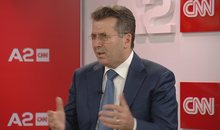
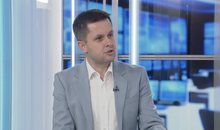


Tirana Lake Park, a campaign center for Noizy. The signatory is silent
2025-05-23 21:55:02

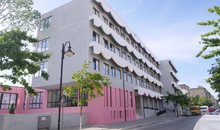

What's happening in Gaza, the struggle for survival in times of war in pictures
2025-05-23 21:02:54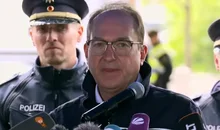
DW: Germany strengthens the return of illegal migrants!
2025-05-23 20:39:57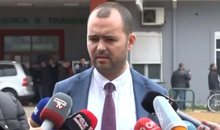
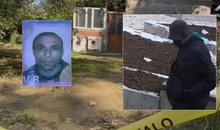

Knife attack at Hamburg train station, 12 injured
2025-05-23 19:54:58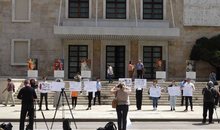
120 children go missing every year in Albania, 12 still missing in 30 years
2025-05-23 19:35:35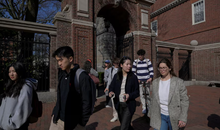
US court suspends order banning Harvard from admitting foreign students
2025-05-23 19:22:41
Zodiac signs that become luckiest after the third decade of life
2025-05-23 19:19:06
Igli Tare officially appointed as Milan's new Sporting Director
2025-05-23 19:01:12
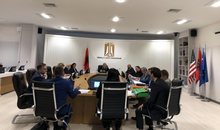
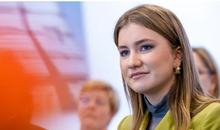


Istanbul Agreement, Ukraine and Russia exchange 800 prisoners
2025-05-23 17:54:20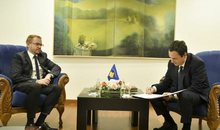

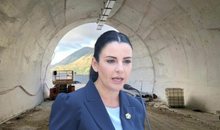

Belina Pupa reacts to serious accusations in Australia for drug cultivation
2025-05-23 16:59:55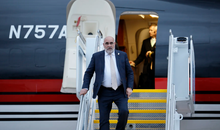

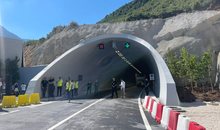
The Llogara tunnel opens tomorrow, until when will it be free of charge?
2025-05-23 16:09:31



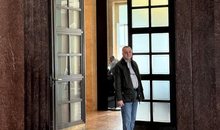

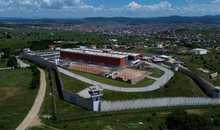
The first prisoners from Denmark are expected to arrive in Kosovo in April 2027.
2025-05-23 14:51:26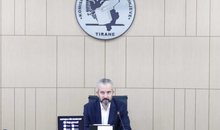
May 11/ Celibashi approves the summary tables of results for 4 districts
2025-05-23 14:50:04
Trump threatens tariffs on EU goods and iPhones
2025-05-23 14:39:47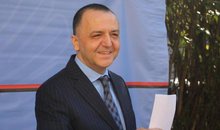
Artan Lame passes away, his mother confirms: This cursed moment came
2025-05-23 14:26:48
Divorce map in 61 municipalities, the South far ahead of the North
2025-05-23 14:15:16
2-year-old Dutch boy falls from third floor of Rinas hotel, taken to hospital
2025-05-23 14:01:40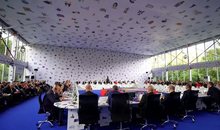
Europeans, you have slandered us.
2025-05-23 13:54:00
Vlora/ He hit the minor and fled the scene, the 27-year-old woman is wanted
2025-05-23 13:41:24
Arrested today in Lalëz, who is Flobens Meçja, was paid by Çopja to kill Alibej
2025-05-23 13:33:43
Here's how many hours you should sleep depending on your age
2025-05-23 13:32:16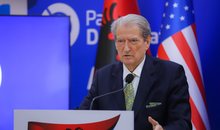
Berisha reveals when he will leave politics
2025-05-23 13:12:15
Three proven ways to dismantle an autocrat
2025-05-23 13:03:16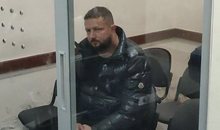
"The goods are 800-cents", how Altin Morina trained RENEA and made bargains
2025-05-23 12:59:07
Berisha: Poja was Rama's guest, Surreli was used for gang meetings
2025-05-23 12:49:22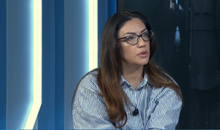
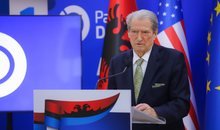


Meta: The criminal regime destroyed the elections, a threat to democracy
2025-05-23 12:16:48
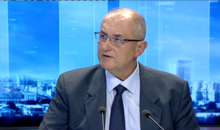
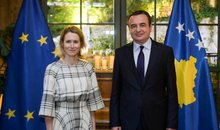

From money to betrayal, everything turns upside down for these three signs
2025-05-23 11:32:44

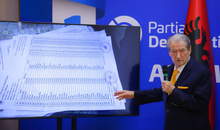
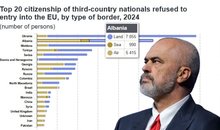
Albanians, the second most rejected at EU borders in 2024
2025-05-23 10:41:04




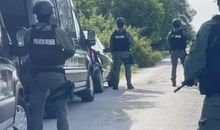
RENEA action in Durrës, checks mainly in Sukth and Shijak
2025-05-23 09:33:13


Foreign exchange, May 23, 2025
2025-05-23 08:47:28

Horoscope, what do the stars have in store for you today?
2025-05-23 08:15:27
Temperatures are rising, what is the weather expected to be like during the day?
2025-05-23 08:01:25
Morning Post/ In 2 lines: What mattered yesterday in Albania
2025-05-23 07:48:25

Diaspora vote, Berisha: The envelopes were filled in Albania
2025-05-22 22:45:58
"Notify the DEA", Abilekaj: Internationals do not trust our institutions
2025-05-22 22:30:07
Operation "Bridge", journalist: SPAK was used as an election certifier
2025-05-22 22:07:35
Berisha: Rama won 28 mandates with criminal gangs
2025-05-22 21:58:18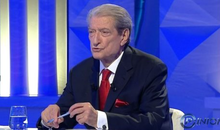

Fevziu clarification for Artan Lamen: He is still alive, but in a coma
2025-05-22 21:44:33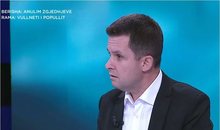
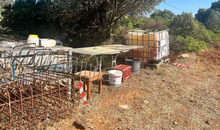

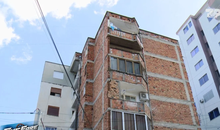
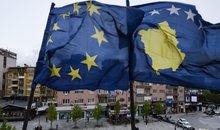
Which of the punitive measures has the EU started to remove from Kosovo?
2025-05-22 20:49:38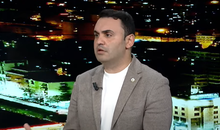
Këlliçi: SPAK acted after the elections, directed by Rama
2025-05-22 20:42:10
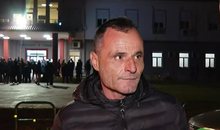


EU Integrity for Sale: Tirana Edition
2025-05-22 19:51:52
Plane crashes into homes in San Diego, California, several casualties reported
2025-05-22 19:49:43
May 11th Elections, Source: With the Bulgarian Train, he wins 300 thousand votes
2025-05-22 19:34:16
Citizens pay out of pocket for health funds at the lowest level since 2017
2025-05-22 19:21:43
After three terms/ Erdogan: He will not run for president again
2025-05-22 19:08:35

SPAK seized two properties in 'Kodra e Diellit', Veliaj and Xoxa's lawyers react
2025-05-22 18:42:25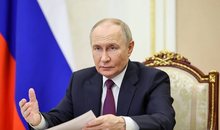

Symbolic or essential? The risk of women's representation in the new Parliament
2025-05-22 18:14:54
